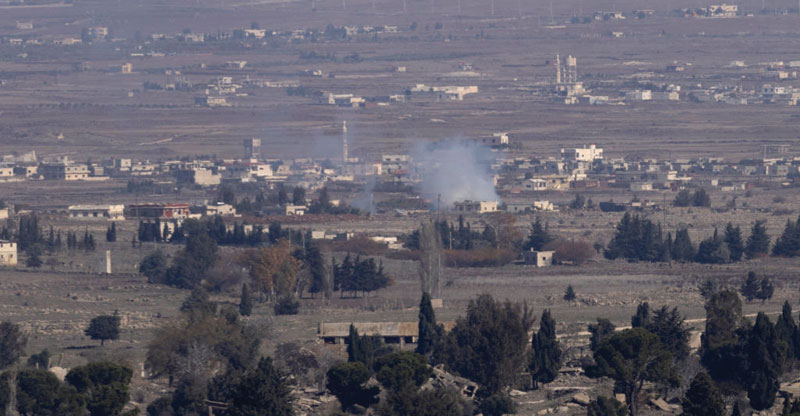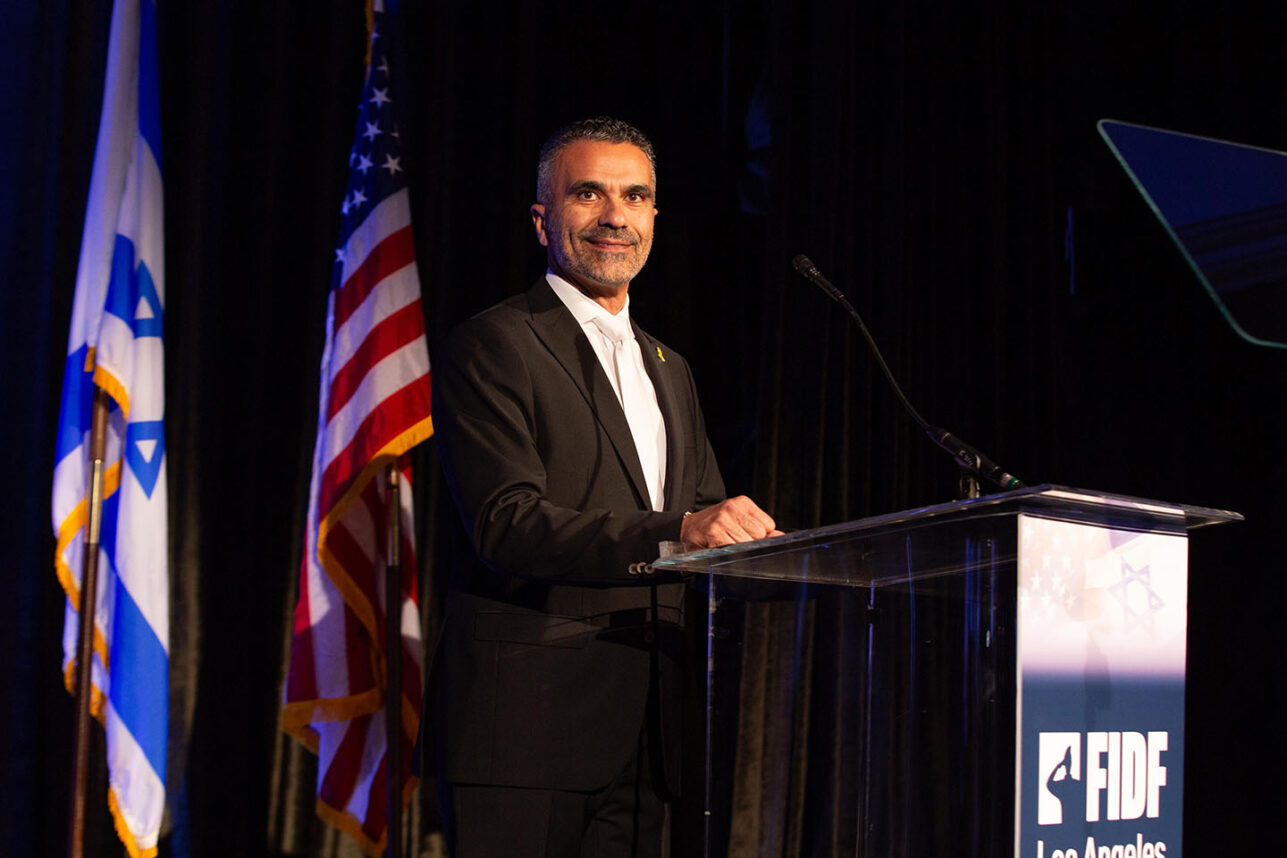There’s nothing more peculiarly, confoundinglyIsraeli than soccer on Shabbat. But it may be coming to an end. It’sa sign of the times.
For 70 years, big-league soccer games in Israel –or, before 1948, in Palestine — have been played on Shabbat. Whilethe game is beloved by all sectors of the population, the mostnumerous and passionate fans can be found among working-classSephardim. Most players also come from this background.
Over the last generation, and especially in thisdecade, blue-collar Sephardim, nearly all of whom were raised”traditionally” religious, have been gripped by a new passion –fundamentalist Judaism. Where, in the past, these fans had no problemmaking the Friday-night kiddush and then screaming their lungs out atthe Shabbat afternoon games, more and more newly religious fans andplayers are now finding the guilt too much to bear.
They don’t want to give up soccer. But they don’twant to desecrate the Shabbat, either. So they have a new,revolutionary idea: Move National League (first division) soccergames from Shabbat to a weeknight.
The idea has been pushed hardest in recent yearsby the powerful Shas Party (Sephardi Orthodox) and its spiritualleader, Rabbi Ovadia Yosef. A number of soccer stars such as EliOhana and Haim Revivo have climbed on the bandwagon. And, now, theIsrael Football Association (soccer is called football everywhere butin the United States) declared recently that it favors moving itsNational League games from Shabbat to Sunday night, out ofconsideration for its observant fans and players.
The ties between soccer and religion have beengrowing closer and closer over the years. Many teams seek theblessings of prominent local rabbis before each game. Some soccerplayers make campaign appearances for Shas during election years.Fans, most of whom also bet on the Sportoto soccer pools, are knownto kiss mezuzot with greater-than-usual fervor as game dayapproaches.
The IFA’s proposal has, naturally, set off anationwide debate. Moving soccer from Shabbat would not only end abedrock national tradition, but it would also mean an upheaval inIsraeli leisure culture. Aside from soccer — at the stadiums, and onTV and radio — there isn’t much in the way of formal, organizedactivity on Shabbat. What will people do?
And wouldn’t this mean one more encroachment bythe religious into Israeli life? What would the left-wing, secularMeretz Party say?
It turns out that Meretz doesn’t have much to say.”If this is being done by choice, then who am I to tell someone thatthey must play on Shabbat?” says Knesset Member Yossi Sarid, leaderof the party.
Yet the switch to Sunday nights is by no meanscertain. The IFA says that it will only cancel Shabbat games if it iscertain that the move will not hurt attendance — and, by extension,the teams’ bottom lines. A public opinion poll by the respectedGeocartography Institute found that 34 percent of Israelis opposedending Shabbat soccer, while only 20 percent approved.
The soccer association is asking the harediparties to use their considerable influence in Knesset to guaranteethat the state would pick up any losses incurred by playing on Sundaynights instead of Shabbat. But the haredi parties have balked.
“I don’t think we have to ‘buy’ Shabbat,” saidRabbi Avraham Ravitz, head of the Degel Hatorah (Banner of the Torah)Party and chairman of the Knesset Finance Committee. “There would beno end to it. First, soccer clubs; then, factories; then, malls wouldask for money to stay closed on Shabbat. Shabbat is a gift; we don’thave to pay for it.”
There is a precedent for canceling Shabbat games:Most of the second division, or top minor-league, soccer teams havebeen playing on Friday afternoons for many years for the sake oftheir religious fans and players. In the working-class Sephardi cityof Lod, near Ben-Gurion Airport, the minor-league club Hapoel Lod hasbeen playing on Fridays since 1983. Hundreds of strictly religiousfans, including quite a few Chabadniks, are in the stands for everygame.
“I go every Friday. Everybody here prefers it thatway. All of Lod is going hozer betshuva [newly religious]. They haveto move the [National League] games from Shabbat; it’s the only way,”says Ya’acov Friedman, 17, a self-described hozer betshuva and soccer”lunatic.”
Besides seeking to accommodate Lod’s religiousfans and players, the team and the municipality hoped that by holdinggames on Friday, nonreligious fathers would spend more time withtheir families instead of being preoccupied with soccer. Yet thisobjective, say the locals, has not been achieved. Shabbat is stillsoccer day in Lod.
In a local shopping mall, Ruti, a 27-year-oldclerk, says that even though Hapoel Lod plays on Fridays, herhusband, also a soccer “lunatic,” spends all Shabbat obsessed withthe fortunes of the National League teams.
“He sits in the living room, watching the game onTV, and he’s got the headphones on so he can hear another game on theradio, and he’s got the Sportoto card in one hand and a pencil in theother. For me, it’s a headache. I tell him, ‘One of these days, I’mgoing to break the TV,'” she says.
Asked what her husband would do if the NationalLeague played on Sunday night, Ruti says, “So he’ll go to the gameson Sunday night.”
Then what will he do on Shabbat?
Ruti pauses. “I can’t even imagine,” shesays.
Likewise, it’s hard to imagine Israel withoutsoccer on Shabbat. It’s a tradition so deeply rooted in Israeli lifethat it’s become a modern Jewish ritual. Rituals die hard. But thegrowing power of fundamentalist Judaism may be stronger. Israel ischanging, and even Shabbat soccer isn’t sacred anymore.





















 More news and opinions than at a Shabbat dinner, right in your inbox.
More news and opinions than at a Shabbat dinner, right in your inbox.